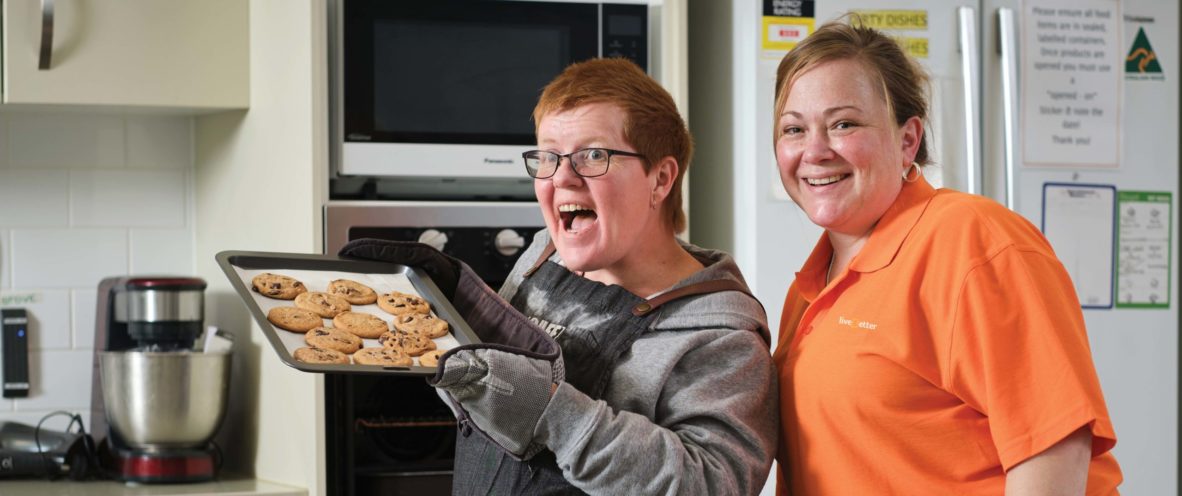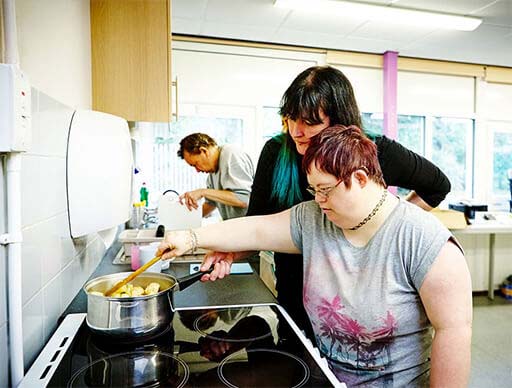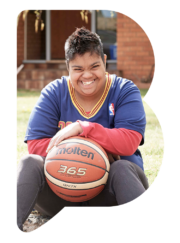A snapshot of the guide:
The benefits of living more independently
Living more independently means having choice and control over the decisions you make in your daily home life – both big and small.
From having a key to your own front door, to being able to make friends and participate in your local community; living independently isn’t just about a change in where you live – it’s also about how you choose to live.
Some of the benefits of living more independently include:
- Building and maintaining relationships
- Being empowered to make your own choices everyday
- Exploring and maintaining employment opportunities
- Building your capacity (e.g. learning to cook or other daily living skills)
LiveBetter provides three types of support to help you live more independently
Our team will help you find a living situation that’s just right for you, in a location you like, and in an environment where you feel valued and safe.
LiveBetter offers three types of independent living support:
- Assistance with daily living
- Individualised living options
- Supported independent living
1. Assistance with Daily Living
A lower-level support that aids with daily living tasks and this level of assistance looks different for everyone. You might like occasional help or want support several times a week. Whatever it is, we can support you in your home or out in the community. It’s also a way of providing support to your family or carers you live with.
We can help with things like:
- Daily routines
- Cooking and cleaning
- Doing the washing, ironing and folding
- Showering, getting dressed and personal care
- Administering medication or prompting you to remember
- Managing money and budgeting
- Attending an appointment
- Shopping
- Visiting friends
- Going out for a meal.
2. Individualised Living Options (ILO)
With our support, you work out where you want to live, who with, what support you need and who you would like to provide that support.
The supports you receive are highly personalised to your needs and preferences. You might require support with personal care, cooking or doing the laundry – whatever it is, we can design a mix of supports that’s just right for you.
ILO doesn’t provide the house or dwelling itself, but rather a flexible package of supports in your home. It works alongside other funded supports and services you receive as well as the help you might get from your family, friends, or community.
3. Supported Independent Living (SIL)
Supported Independent Living is for people with higher support needs, who need some level of help at home all the time. But this isn’t about doing things for you – it’s about doing things with you. And having a great time while doing it! And while each day is different, you’ll benefit from a familiar routine. A typical day with Supported Independent Living (SIL) could be:
- Wake up with personal care support
- Make breakfast and lunch
- Go to a centre-based program or your job
- Come home and make dinner
- Relax with your housemates.
Support for carers and family members during times of change
Sometimes it can be difficult for carers and family members to take a step back as you become more independent.
When your living arrangements change, it doesn’t mean carers and family members lose involvement in your life. When you transition to live more independently, it means the role of your carer/family member can shift from caring and focusing on your actual relationship. And of course, family members and carers can still be involved in decision making.
Ready to make your move? Here are your next steps!
- Contact your Support Coordinator
- Set goals and communicate them
- Find a good support network
- Practice healthy living habits and skills daily
- Decide what stays and what goes with you
- Consider future goal setting




